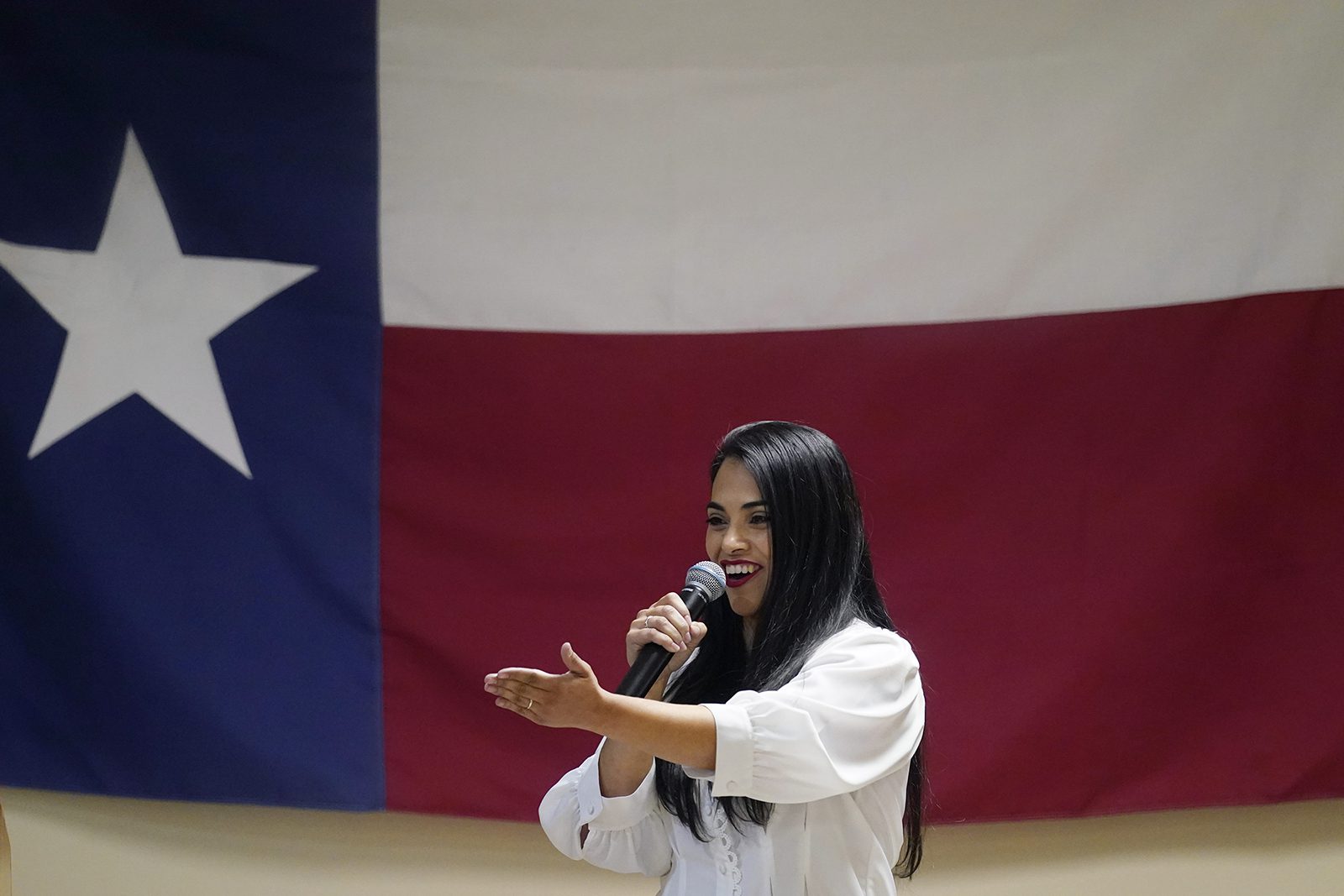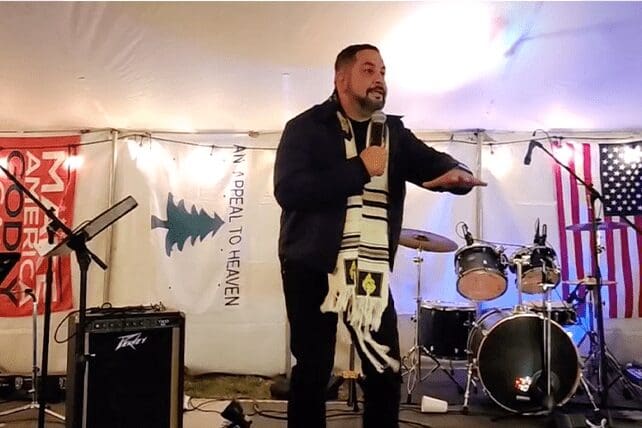(RNS) — Pastor Luis Cabrera, who leads City Church Harlingen in South Texas, foresees a “godly wave” in next week’s midterm elections, particularly in his home state, where he has acted as a spiritual guide to a group of Latina Republicans seeking to flip congressional seats with a message of faith, family and country. Values, they say, that are central to Latino voters.
Values, they believe, that Democrats have abandoned.
“We’re going to take this country back for God and we’re going to fight for our piece of the land, for the American dream … for our principles, our values and our morals,” said Cabrera, 45, who as a child immigrated with his parents to the U.S. from Nicaragua.
“Make America Godly Again” is a phrase Cabrera uses often as part of a revival movement — which stands against abortion and advocates for Bibles in schools and more funding for law enforcement — that helps political candidates organize their campaigns around God. It’s a slogan Rep. Mayra Flores employed with success in her June special election campaign that made her the first Mexican-born woman to serve as a member of Congress. Flores is seeking to retain her seat.
As pastor of a Latino evangelical congregation, Cabrera said he sees church members struggling with rising gas and food prices. He blames the current White House administration for “putting a strain on our economy.” Inflation, he said, “is killing Latino families.” Cabrera said he educates congregants on their civic duties and biblical principles and tells them that as Christians they should vote because “you’re not only a godly citizen, but you’re a citizen of this country.”

In this Sept. 22, 2021, file photo, Republican congressional candidate Mayra Flores speaks at a Cameron County Conservatives event in Harlingen, Texas. (AP Photo/Eric Gay)
Latinos are regarded as the fastest-growing racial and ethnic group in the United States electorate, and with the midterms just one week away, Republicans, conservative pastors and other right-wing organizations are centering faith as they escalate outreach to Latino voters in battleground states like Texas, Arizona and Florida.
Pew Research Center data looking at 2022 midterm election preferences of Latinos shows that some of the sharpest differences in candidate choice are by religion.
Half of Latino evangelical Protestants said they would vote for the Republican candidate for U.S. House, while a majority of Latino Catholics (59%) and the religiously unaffiliated (60%) said they would vote for the Democratic candidate, according to the Pew.
With Pew data showing U.S. Latinos are no longer majority-Catholic, recent election polls have highlighted a growing number of non-Catholic Latinos who were never Catholic to begin with. Some were raised Protestant, and, increasingly, many are raised nonreligious.
“As aggregate populations, religious nones will likely support more progressive political positions, while evangelicals will lean more conservatively,” said Jonathan Calvillo, an assistant professor of Latinx studies at Emory’s Candler School of Theology.
Religious and political affiliation, however, can also vary by where Latinos live, according to University of Nebraska Omaha religion professors Laura E. Alexander and Cristián Doña-Reveco in an essay published in The Conversation. The professors analyzed 2021 Pew data and found that Latino Protestants in the Midwest were more likely to identify as Democrat or Democrat-leaning than in other regions.
Calvillo notes that even as Latino Protestants don’t always lean Republican, particularly in specific regions, the voices that speak for them are often more conservative. He wonders: “To what extent are Latino Protestants being pushed in this direction?”

